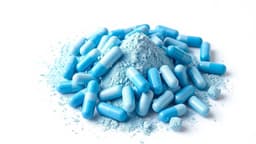Home / Health / Amgen's Repatha Cuts Heart Attack Risk by 36% in Landmark Study
Amgen's Repatha Cuts Heart Attack Risk by 36% in Landmark Study
10 Nov
Summary
- Repatha reduced major cardiovascular events by 25% for high-risk patients
- Repatha cut the risk of a first heart attack by 36%
- Repatha also reduced the risk of cardiovascular death by 21%

According to results presented on November 10th, 2025, Amgen's cholesterol drug Repatha has demonstrated remarkable efficacy in reducing major cardiovascular events for high-risk patients who have never had a heart attack or stroke. In a study of over 12,000 patients, Repatha, when added to standard therapy, cut the risk of a first heart attack by 36%. The drug also reduced the relative risk of cardiovascular death by 21%, although this result was not statistically significant.
These findings mark a significant breakthrough for the PCSK9 inhibitor class, as Repatha is the first drug in this category to prove effective in primary prevention. This opens the door for expanded patient access, as the U.S. FDA had previously only approved Repatha for those with diagnosed cardiovascular disease. Amgen's research and development chief, Jay Bradner, noted that the new data is crucial for health insurers and payers to determine coverage.
Repatha targets the PCSK9 protein, which helps maintain LDL cholesterol levels in the blood. The drug provides an alternative for patients who do not benefit from traditional statin medications. With sales growing 33% year-over-year to $2.15 billion in the first nine months of 2025, Repatha's success is a testament to its potential to transform cardiovascular care.



